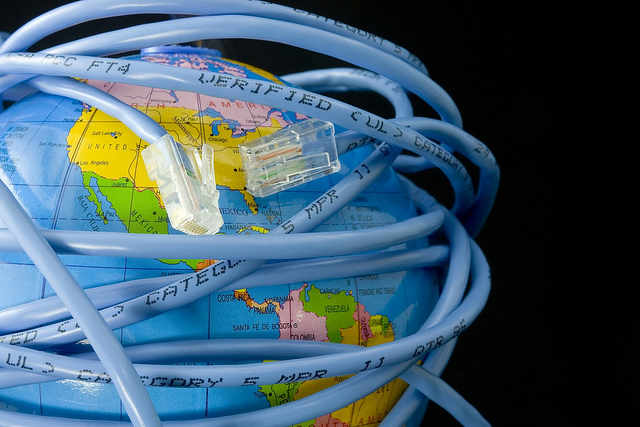Mexico discusses Internet Governance
by Digital Rights LAC on April 6, 2015
In mid-February, local ecosystem actors met for the second time in Mexico City to discuss Internet governance. This is a Mexican venture inspired by the Internet Governance Forum and the multi-stakeholder model.
Defining Internet governance
The term Internet governance refers to the mechanisms related directly or indirectly to the development and use of Internet. The degree of formality of these mechanisms varies depending on their scope, making it possible to identify issues of Internet governance in a range that goes from the development of technical standards to the design and implementation of public policies through to laws and regulations.
A working definition for this term is found in paragraph 34 of the Tunis Agenda for an Information Society, from 2005, while work was being carried out by the World Summit on this same topic. It recognizes that ecosystem stakeholders must work together for the development of the Internet:
34. A working definition of Internet governance is the development and application by governments, the private sector and civil society, in carrying out their respective roles, of shared principles, norms, rules, decision-making procedures, and programs that shape the evolution and use of Internet.
Thus, the working definition recognizes a model for Internet governance in which each stakeholder takes part in equal conditions and on the performance of their respective roles. While the definition contained in paragraph 34 recognizes governments, the private sector and civil society, the ecosystem has also recognized the academia and the technical communities in line with paragraph 36 of the same document. This model for Internet governance is known as “multi-stakeholder”.
Spaces for discussing Internet governance
Based on paragraph 72 of the Tunis Agenda, the ecosystem requested the UN Secretary General to create the Internet Governance Forum (IGF). This forum was established as a propitious place to discuss the issues of Internet governance under the multi-stakeholder model.
The original mandate of the IGF was awarded for five years, between 2006 and 2010. In 2010 the mandate was extended until 2015, which means that this year it will be necessary for the General Assembly of the UN to decide if it renews the mandate of the forum, and for how long, if the decision turns out to be positive. This is particularly relevant because Mexico will host the IGF in 2016 if the forum continues to exist.
Regionally, the actors of the ecosystem found that the global Internet governance agenda had some peculiarities with regard to Latin America and the Caribbean (LAC). For example, in relation to digital disparity, there are some regions of the planet where vast populations have access to Internet connections, therefore their discussions are more focused on issues like net neutrality or definitions of broadband. By contrast, there are countries within the region that still have alarmingly low rates.
Thus the Regional Preparatory Meeting for Latin America and the Caribbean, for the Internet Governance Forum (LACIGF) was formed. The first meeting was held in Montevideo, Uruguay, in 2008. Like the IGF, this meeting takes place annually, but around countries of the region. The agenda of each issue remains subject to public consultation among the community, a few months in advance.
Mexico: Discussions on Internet Governance
As global discussions found their particular agendas at regional level, some countries identified the need to create more opportunities to further discuss these issues. Thus, in Mexico the Internet Governance Initiative Group came forth as an effort driven by various actors of the Internet ecosystem of the country.
The Group proposed the idea of holding an event inspired by the IGF and the multi-stakeholder model, leading to the Discussions on Internet Governance, which first took place in November 2013 in Mexico City. At that time, the effort proved to be useful for exchanging views about issues that are relevant to the development of Internet in Mexico.
The second edition was held on 17th and 18th February, 2015. As with the first edition, it took place in the capital and was appropriate for bringing the various actors of the ecosystem together in a single place to express their ideas concerning Internet development in the country.
– The working groups focused on the following topics:
– Introduction to Internet Governance
– Government, data and Open Access
– Net Neutrality
– Tensions regarding internet rights
– Infrastructure security and resilience of the network
– Security and cooperation with authorities
– Access, competence, reducing the digital divide and multiculturalism on Internet
– Local models for Internet governance
The Manifesto for Internet governance
During the second event of Discussions on Internet Governance, the ecosystem revealed the Manifesto for Internet governance. The document was presented during the opening ceremony by the National Digital Strategy Coordinator of the Office of the Presidency of the Republic, Alejandra Lagunes.
The manifesto seeks to concentrate the coinciding factors of the actors and stakeholders of the ecosystem, in order to develop them into a dynamic document that will serve as a benchmark, both at national and international level. Currently, the document is subject to public consultation via a platform for citizen participation, belonging to the Government of the Republic.
Thus, the discussions on Internet governance have established themselves as an appropriate space for any actor of the ecosystem to make their voice heard and sharing their proposals under the multi-stakeholder model. Sessions can be watched on the YouTube channel dedicated to the event.
*Israel Rosas. Analyst of telecommunications and Internet governance related issues. Follow on Twitter: @irosasr. The opinions expressed herein are issued on a strictly personal basis and therefore should not be construed as representative of the institutions to which the author is affiliated.
Image credit: (CC: BY-NC-SA) LOSINPUN / Flickr






